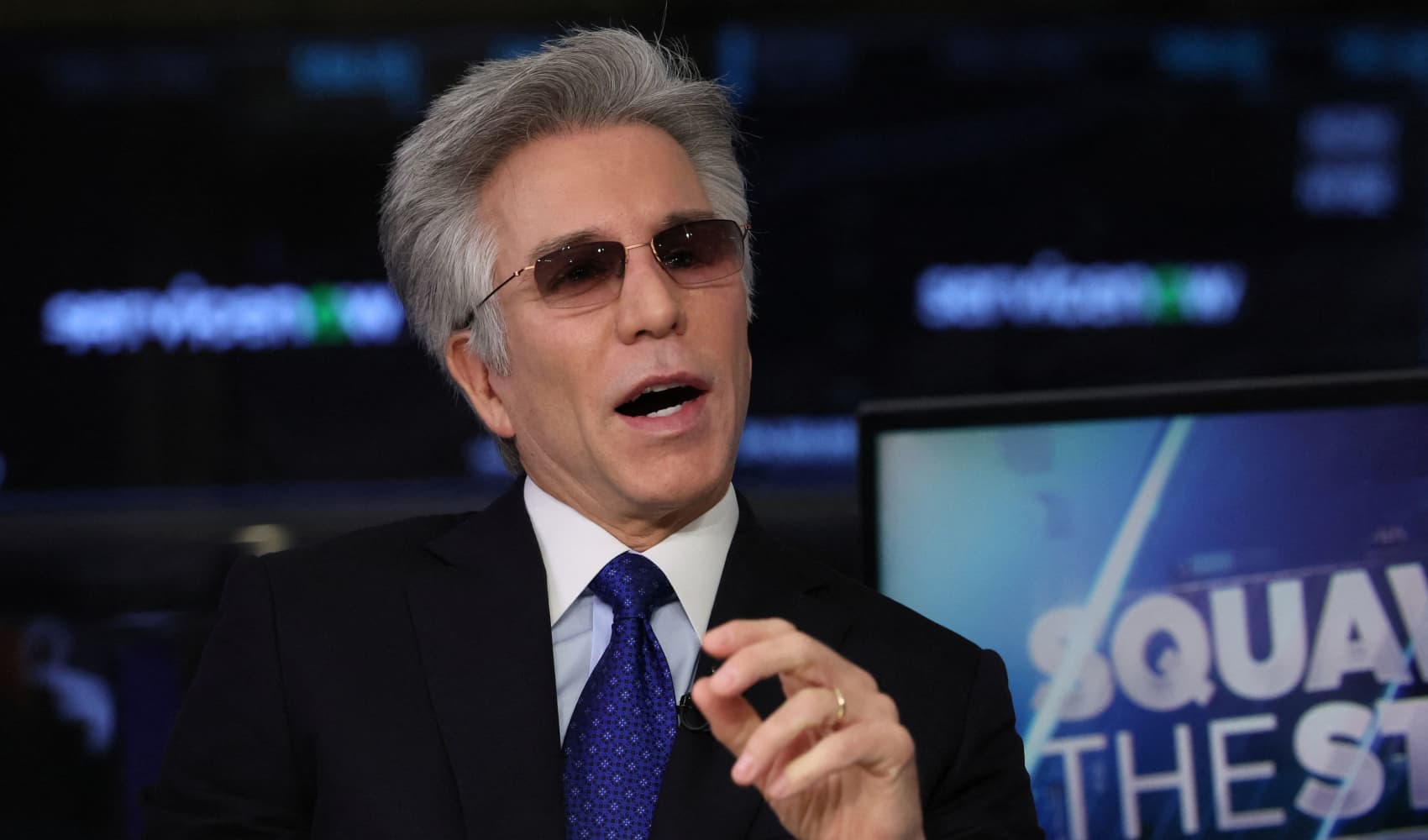ServiceNow Stock Surges! What's Behind the 15% Jump?
ServiceNow Soars! 15% Stock Jump on Earnings Beat & Bullish Outlook
Introduction: A Spring in ServiceNow's Step
Have you ever felt like you're running on all cylinders, firing on every front? That's precisely what ServiceNow seems to be experiencing. The enterprise technology giant recently announced its first-quarter results, and let's just say, Wall Street was impressed. The company's shares skyrocketed by over 15%, fueled by earnings that not only met but exceeded expectations, and an optimistic forecast that painted a bright future. But what exactly drove this surge, and what does it mean for investors and the tech landscape in general? Let's dive in and unpack this exciting news.
First-Quarter Fireworks: Beating the Street
ServiceNow didn't just meet expectations; it blew past them! The company reported some seriously impressive numbers. We're talking about an adjusted earnings per share (EPS) of $4.04 on a revenue of $3.09 billion. Not too shabby, right?
- Earnings per share: $4.04 (vs. an estimated $3.83)
- Revenue: $3.09 billion (vs. an estimated $3.08 billion)
Breaking Down the Numbers: A Deeper Dive
So, what does this all mean in practical terms? The $3.09 billion in revenue represents roughly 19% growth year-over-year. This kind of expansion is rare and valuable for established players in any industry. What can we learn from these numbers?
- Customer Satisfaction: Strong earnings often indicate happy and returning customers.
- Market Expansion: Rapid growth reveals the company is finding and acquiring new users.
- Effective Leadership: Impressive financial results reflect the direction of an efficient C-suite.
It shows the strength of ServiceNow's business model and its ability to consistently deliver value to its customers.
The McDermott Factor: Leading the Charge
At the helm of this success is CEO Bill McDermott, a seasoned leader with a proven track record. He played a key role in this surge. McDermott's leadership has been instrumental in shaping ServiceNow's strategic direction and driving its impressive growth. His vision and execution have clearly resonated with both investors and customers.
Government Efficiency and Elon Musk: An Unexpected Twist
Now, here's where things get interesting. During the earnings call, McDermott mentioned having "very positive" discussions with the "Department of Government Efficiency," led by none other than Tesla CEO Elon Musk. Now, while details are scarce, the mere mention of Musk's involvement sparked considerable interest and speculation. Is this a sign of potential collaboration between ServiceNow and Tesla? Could this partnership lead to groundbreaking innovations in government efficiency and technology?
Macroeconomic Uncertainties: Navigating the Storm
Let's face it; the global economy is a bit of a rollercoaster right now. With inflation, interest rate hikes, and geopolitical tensions swirling around, many companies are bracing for tougher times. But ServiceNow seems to be bucking the trend, demonstrating resilience and adaptability in the face of these challenges. Their upbeat forecast suggests confidence in their ability to continue growing, even in an uncertain environment. How do they accomplish this feat?
- Diversified Product Portfolio: The company offers an array of services.
- Strong Customer Relationships: A robust network of clients ensures recurring revenue.
- Innovative Solutions: Offering the most cutting-edge technology gives them a competitive edge.
Upbeat Guidance: A Glimpse into the Future
Speaking of the forecast, ServiceNow's management team is projecting continued growth in the coming quarters. This positive outlook is a key factor driving investor confidence and contributing to the stock's impressive performance. It suggests that ServiceNow is not just a flash in the pan but a company with sustainable long-term growth potential. The strong guidance is particularly important in today's market.
ServiceNow's Platform: The Engine of Growth
At the heart of ServiceNow's success lies its powerful platform. This cloud-based platform provides a wide range of services for enterprise customers, including IT service management, customer service management, and HR service delivery. It's a one-stop shop for businesses looking to streamline their operations and improve efficiency. This platform is the foundation for the rest of their services.
The Digital Transformation Imperative: Riding the Wave
One of the key drivers of ServiceNow's growth is the ongoing digital transformation sweeping across industries. As businesses increasingly rely on technology to compete and thrive, the demand for ServiceNow's solutions is only set to grow. They are well-positioned to continue to ride the digital transformation wave for years to come. Every company is looking to modernize their processes and digitize their operations.
Customer Acquisition and Retention: The Keys to Success
Acquiring new customers is crucial for any business, but retaining existing ones is equally important. ServiceNow excels at both. The company's focus on customer satisfaction and its ability to deliver tangible value have resulted in high retention rates and strong customer loyalty. They know that keeping customers happy is just as important as winning them over. They achieve these high rates through:
- Strong Customer Service: They go above and beyond to assist customers.
- User-Friendly Software: Their technology is accessible and easy to implement.
- Continual Improvements: The company is constantly innovating and modernizing their services.
Competitor Landscape: Standing Out from the Crowd
ServiceNow operates in a competitive market, facing challenges from other enterprise software vendors. However, the company's unique platform and its focus on innovation have allowed it to differentiate itself from the competition. They've carved out a niche for themselves and have emerged as a leader in the IT service management space. They continue to set themselves apart through cutting-edge products and superior service.
Analyst Ratings and Investor Sentiment: A Positive Outlook
Wall Street analysts are generally bullish on ServiceNow's prospects, with many reiterating their "buy" ratings and raising their price targets following the strong first-quarter results. Investor sentiment is also overwhelmingly positive, as evidenced by the surge in the company's stock price. The mood is definitely upbeat, and all indicators point to continued growth and success. Analysts are optimistic because the company is in a strong position to continue its growth trajectory.
Potential Risks and Challenges: Keeping an Eye on the Horizon
Of course, no company is immune to risks and challenges. ServiceNow faces potential headwinds from macroeconomic uncertainties, increased competition, and potential disruptions in the technology landscape. It's important to remember that even the most successful companies can face setbacks. These issues must be kept on the radar:
- Recessionary Fears: Economic downturns can impact spending on technology.
- Increased Competition: The tech landscape is constantly evolving and becoming more saturated.
- Geopolitical Instability: Global events can create unpredictable circumstances.
Long-Term Growth Prospects: A Bright Future
Despite these challenges, ServiceNow's long-term growth prospects remain bright. The company is well-positioned to capitalize on the growing demand for digital transformation solutions and its continued innovation will help it stay ahead of the competition. If you're looking for a company with a solid track record, a strong leadership team, and a clear vision for the future, ServiceNow is definitely worth considering.
Investment Implications: Should You Invest?
Whether or not to invest in ServiceNow is a personal decision that depends on your individual investment goals and risk tolerance. However, the company's strong financial performance, its positive outlook, and its leadership position in a growing market make it an attractive option for many investors. It is always advisable to consult with a qualified financial advisor before making any investment decisions.
Conclusion: Key Takeaways from ServiceNow's Surge
ServiceNow's recent 15% stock jump is a testament to the company's strong execution, its innovative platform, and its ability to navigate challenging market conditions. The company's first-quarter results exceeded expectations, its upbeat forecast instilled confidence in investors, and its potential collaboration with Elon Musk sparked excitement about the future. While risks remain, ServiceNow's long-term growth prospects appear bright, making it a compelling investment opportunity for those seeking exposure to the enterprise technology sector.
Frequently Asked Questions
- What exactly does ServiceNow do?
ServiceNow provides cloud-based solutions that help businesses manage their digital workflows. Think of it as a digital control center for all your IT, customer service, and HR needs.
- Why did ServiceNow's stock price jump so much?
The primary drivers were stronger-than-expected earnings and revenue, coupled with an optimistic outlook for the future, signaling continued growth and profitability.
- Is ServiceNow's stock a good investment right now?
That depends on your personal investment strategy and risk tolerance. However, many analysts are bullish on the stock due to the company's strong performance and growth potential. Always do your own research before investing.
- What is the "Department of Government Efficiency" that was mentioned?
Details are scarce, but it appears to be a new initiative led by Elon Musk, potentially focused on streamlining government operations through technology. ServiceNow's involvement could signal a significant partnership.
- What are some of the biggest risks facing ServiceNow?
Like any company, ServiceNow faces risks such as macroeconomic uncertainty, increased competition in the tech space, and potential disruptions in the technology landscape.









